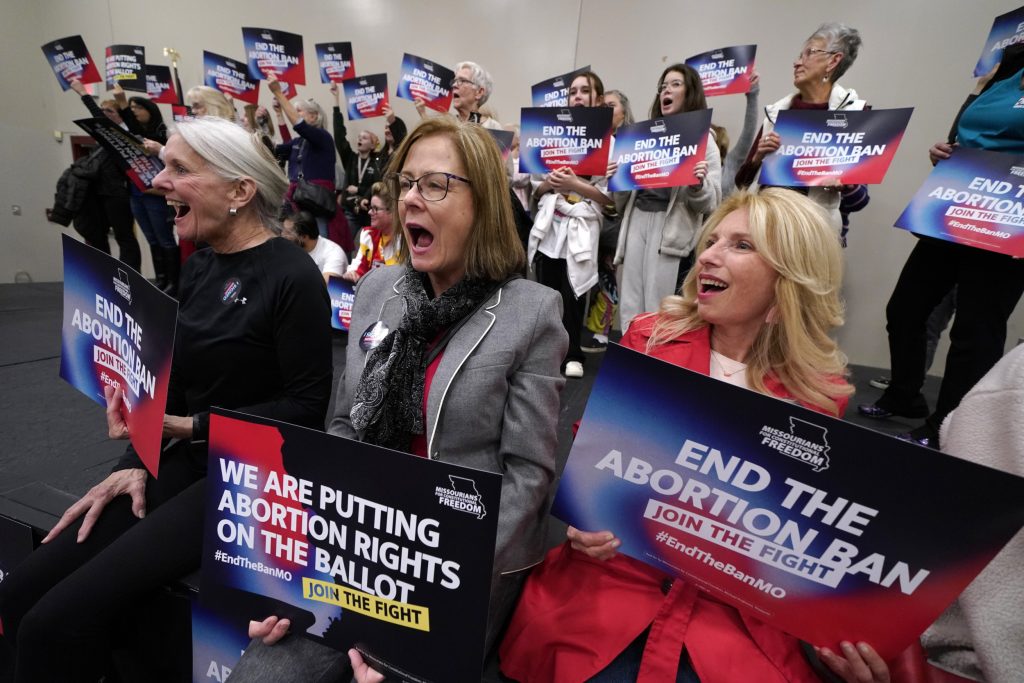A Jackson County Circuit Court judge, Jerri Zhang, is set to hear arguments regarding a lawsuit aimed at overturning Missouri’s near-total abortion ban. This case, spearheaded by abortion-rights advocates, has emerged in the wake of voters approving a constitutional amendment that affirms abortion rights in the state. The hearing will involve discussions between Planned Parenthood representatives and the Missouri Attorney General’s Office, focusing on whether to temporarily block the enforcement of Missouri’s restrictive abortion laws, which have limited access to reproductive health care significantly.
The lawsuit centers on the assertion that Missouri’s current abortion laws inflict severe harm on residents, further complicating access to essential health care. The legal representatives for the abortion-rights advocates claim that the existing restrictions could lead to catastrophic consequences for Missourians if they remain in effect. They argue that these laws either entirely inhibit access to care or result in considerable delays in obtaining necessary medical services. Even though the recent constitutional amendment does not directly nullify existing laws, it offers a legal basis for challenging what opponents deem unconstitutional restrictions on abortion.
In a significant acknowledgment, Missouri Attorney General Andrew Bailey stated that the amendment will likely lead to the legality of most abortions starting Thursday, but he remains committed to defending certain restrictions, including bans after fetal viability. The new amendment allows state lawmakers to impose regulations after this viability period, with exceptions for scenarios where the physical or mental health of the pregnant person is at risk. Viability typically refers to the point in prenatal development when a fetus can survive outside the uterus, generally considered to be around the 21st week of gestation.
When comparing Missouri’s situation with other states, it is notable that several states have recently taken steps to protect abortion rights through voter-approved measures. This year, five states, including Nevada and New York, have successfully passed amendments that secure abortion rights. In contrast, other jurisdictions, like Arizona, are facing legal challenges aimed at reversing previous restrictions despite the passage of new amendments. Missouri’s framework allows for some limitations post-viability, positioning the state as part of a larger national conversation about reproductive rights and the implications of such laws on access.
Among the specific restrictions being challenged by Planned Parenthood are a mandated 72-hour waiting period, a prohibition on abortions sought based on the race, sex, or potential Down syndrome diagnosis of the fetus, and stringent licensing requirements for abortion providers. The organization argues that these regulations were set in place to make the provision of abortion services practically impossible, long before the state’s near-total ban was enacted in 2022. In response, the Attorney General’s Office claims that Planned Parenthood has failed to demonstrate concrete harm arising from these laws, noting that no abortion appointments have been scheduled in advance of the amendment’s enactment.
The outcome of Judge Zhang’s consideration of the request for a preliminary injunction remains uncertain, yet it carries substantial implications for Missouri’s reproductive health care landscape. The ruling could either strengthen or undermine abortion rights in the state following the recent constitutional amendment. As the legal arguments unfold, they will likely set a precedent not only for Missouri but also for how other states navigate the complex and often contentious policy environment surrounding reproductive rights. This case exemplifies the ongoing tensions and transformative shifts in legislation that characterize the current national discourse on abortion access.










